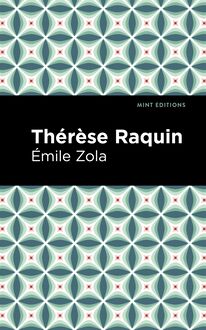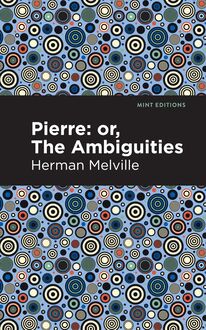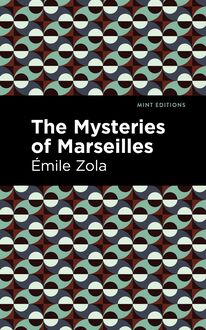-
 Univers
Univers
-
 Ebooks
Ebooks
-
 Livres audio
Livres audio
-
 Presse
Presse
-
 Podcasts
Podcasts
-
 BD
BD
-
 Documents
Documents
-
- Cours
- Révisions
- Ressources pédagogiques
- Sciences de l’éducation
- Manuels scolaires
- Langues
- Travaux de classe
- Annales de BEP
- Etudes supérieures
- Maternelle et primaire
- Fiches de lecture
- Orientation scolaire
- Méthodologie
- Corrigés de devoir
- Annales d’examens et concours
- Annales du bac
- Annales du brevet
- Rapports de stage
La lecture à portée de main
Vous pourrez modifier la taille du texte de cet ouvrage
Découvre YouScribe en t'inscrivant gratuitement
Je m'inscrisDécouvre YouScribe en t'inscrivant gratuitement
Je m'inscrisEn savoir plus
Vous pourrez modifier la taille du texte de cet ouvrage
En savoir plus

Description
The Mysteries of Marseilles (1895) is a novel by French author Émile Zola. Originally serialized in Le Messager de Provence in 1867, The Mysteries of Marseilles was written at the very beginning of Zola’s literary career. Intent on exploring taboo and the lives of people on the edge of society, Zola crafts a narrative capable of illuminating the human condition while humanizing those typically disdained by the literary elite. In mid-nineteenth century France, a Second Republic has come into power following the Revolution of 1848, installing Napoleon III as the nation’s first president. Over the next several years, the country enters a period of liberal reform and temporary peace. In Marseilles, a poor republican named Philippe Cayot has fallen in love with the young heiress Blanche de Cazalis, a member of one of the city’s most influential families. When their affair is discovered, Philippe is sent to prison and Blanche, after giving birth to an illegitimate child, is forced to enter a convent. Undeterred by the tragedy and injustice of these events, Philippe’s brother Marius hatches a plan to protect the young lovers, rescue their child, and take control of the de Cazalis family fortune. The Mysteries of Marseilles is a story of forbidden love, fading hope, and the false promise of modern life. Written at the very beginning of Zola’s career, it shows the innerworkings of a young mind interested in subjects too often ignored by writers, a mind whose guiding principle is truth and truth alone. With a beautifully designed cover and professionally typeset manuscript, this edition of Émile Zola’s The Mysteries of Marseilles is a classic work of French literature reimagined for modern readers.
Sujets
Informations
| Publié par | Mint Editions |
| Date de parution | 21 juin 2021 |
| Nombre de lectures | 0 |
| EAN13 | 9781513287171 |
| Langue | English |
| Poids de l'ouvrage | 1 Mo |
Informations légales : prix de location à la page 0,0500€. Cette information est donnée uniquement à titre indicatif conformément à la législation en vigueur.
Extrait
The Mysteries of Marseilles
Émile Zola
The Mysteries of Marseilles was first published in 1895.
This edition published by Mint Editions 2021.
ISBN 9781513282152 | E-ISBN 9781513287171
Published by Mint Editions ®
minteditionbooks .com
Publishing Director: Jennifer Newens
Design & Production: Rachel Lopez Metzger
Project Manager: Micaela Clark
Translator: Edward Vizetelly
Typesetting: Westchester Publishing Services
C ONTENTS P ART I I. H OW B LANCHE DE C AZALIS E LOPED WITH P HILIPPE C AYOL II. I NTRODUCES THE H ERO, M ARIUS C AYOL III. T HERE ARE M ENIALS IN THE C HURCH IV. H OW M . DE C AZALIS A VENGED HIS N IECE’S D ISHONOUR V. B LANCHE J OURNEYS S IX L EAGUES ON F OOT, AND S EES A P ROCESSION P ASS B Y VI. T HE H UNT A FTER THE L OVERS VII. B LANCHE D ENIES HER L OVE VIII. T HE I RON P OT A GAINST THE E ARTHEN E WER IX. M . DE G IROUSSE L ETS HIS T ONGUE W AG X. A S CANDALOUS T RIAL XI. H OW B LANCHE AND F INE F IND T HEMSELVES F ACE TO F ACE XII. W HICH S HOWS THAT A G AOLER’S H EART IS NOT A LWAYS M ADE OF S TONE XIII. A B ANKRUPTCY, AS THERE ARE M ANY XIV. I N W HICH IT IS P ROVED THAT IT IS P OSSIBLE TO S PEND T HIRTY T HOUSAND F RANCS A Y EAR W HEN ONLY E ARNING E IGHTEEN H UNDRED XV. P HILIPPE R EFUSES TO S AVE H IMSELF XVI. T HE U SURERS XVII. T WO S HAMELESS C HARACTERS XVIII. I N W HICH T HERE IS A G LIMMER OF H OPE XIX. A R ESPITE P ART II I. M. S AUVAIRE, THE M ASTER S TEVEDORE II. A M ARSEILLAISE L ORETTE III. I N W HICH M ADAME M ERCIER S HOWS HER C LAWS IV. W HICH S HOWS THAT THE P OSITION OF A L ORETTE IS NOT W ITHOUT ITS T ROUBLES V. D OUGLAS, THE N OTARY VI. M ARIUS S EEKS U NSUCCESSFULLY FOR A H OUSE AND A M AN VII. T HE C OWL D OES NOT M AKE THE F RIAR VIII. T HE N OTARY’S S PECULATIONS IX. H OW AN U GLY M AN M AY B ECOME H ANDSOME X. H OSTILITIES ARE R ENEWED XI. D OUGLAS IN THE P ILLORY AT M ARSEILLES XII. M ARIUS L OSES HIS W ITS XIII. T HE G AMBLING- H OUSES OF M ARSEILLES XIV. I N W HICH M ARIUS W INS T EN T HOUSAND F RANCS XV. H OW M ARIUS HAD B LOOD ON HIS H ANDS XVI. M ADEMOISELLE C LAIRE’S P RAYER- B OOK XVII. I N W HICH S AUVAIRE M AKES UP HIS M IND TO H AVE HIS M ONEY’S W ORTH OF F UN XVIII. H OW A BBÉ D ONADÉI E LOPED WITH THE S ISTER S OUL TO HIS O WN XIX. P HILIPPE’S R ANSOM XX. T HE E SCAPE P ART III I. T HE C ONSPIRACY II. M . DE C AZALIS HAS A P LAN III. W HICH T ELLS OF THE E FFECTS P RODUCED BY A P IECE OF W HITE R AG IV. I N W HICH M . DE C AZALIS R UNS THE R ISK OF L OSING HIS H EAD W HILE L OSING HIS G REAT N EPHEW V. I N W HICH B LANCHE B IDS F AREWELL TO THE W ORLD VI. A S PECTRE VII. M . DE C AZALIS Y EARNS FOR J OSEPH VIII . “ O PEN, IN THE N AME OF THE L AW ! ” IX. P ARDON ! P ARDON ! X. T HE I NSURRECTION OF F EBRUARY, 1848 XI. I N W HICH M ATHÉUS B ECOMES A R EPUBLICAN XII. T HE R EPUBLIC AT M ARSEILLES XIII. W HAT M ATHÉUS U NDERSTOOD BY S TRATEGY XIV. T HE R IOT XV. I N W HICH M ATHÉUS C OMPLETES HIS W ORK XVI. T HE B ARRICADES AT THE P LACE A UX Œ UFS XVII. W HAT M ATHÉUS, THE F ORESEER, DID NOT F ORESEE XVIII. T HE A TTACK XIX. I N W HICH M ATHÉUS, AT L AST, G ETS J OSEPH IN HIS A RMS XX. H OW P HILIPPE F IRED A L AST S HOT XXI. T HE D UEL XXII. T HE P UNISHMENT XXIII. E PILOGUE
PART I
I
H OW B LANCHE DE C AZALIS E LOPED WITH P HILIPPE C AYOL
Towards the end of the month of May, 184–, a man about thirty years of age was walking rapidly along a footpath in the Saint Joseph quarter, near the Aygalades. He had left his horse in the care of a small cultivator occupying a neighbouring farm, and was going in the direction of a large, solidly-built square house, a kind of country ch â teau, such as are to be found on the hills of Provence.
The man turned aside to avoid the ch â teau and went and seated himself in a pine wood, which spread out behind the building. Then, anxious and feverish, he pushed aside the branches and glanced along the pathways apparently awaiting someone with impatience. Now and again he rose and took a few steps, then reseated himself all in a tremble.
This man, who was tall and of strange appearance, wore bushy black whiskers. His long face, marked by energetic lineaments, displayed a kind of violent and passionate beauty. Suddenly his eyes softened and a tender smile spread over his thick lips. A young girl had just issued from the ch â teau, and, stooping as though to hide herself, was hastening towards the pine wood.
Rosy and breathless, she reached the shelter of the trees. She was barely sixteen years old. Beneath the blue ribbons of her straw hat, her young face was smiling with a joyous and at the same time a startled expression. Her fair hair fell over her shoulders; her little hands, pressed to her breast, were endeavouring to calm her throbbing heart.
“How late you are, Blanche!” said the young man. “I had almost giving up hoping to see you.”
And he seated her on the moss beside him.
“Forgive me, Philippe,” answered the young girl. “My uncle has gone to Aix to purchase an estate; but I could not get rid of my governess.”
She yielded herself to the embrace of him she adored, and the two lovers enjoyed one of those long talks which are at once so silly and so sweet. Blanche was like a big child playing with her lover as she would have done with a doll. Philippe, now ardent and speechless, was pressing the young girl to him and gazing upon her with all the transports of love and ambition.
And whilst they were seated there, oblivious of the world, they noticed, on raising their heads, some peasants who were following a neighbouring path, whilst watching them, and laughing. Blanche, full of alarm, drew away from her lover.
“I am lost!” she exclaimed, turning quite pale. “Those men will inform my uncle. Ah! for pity’s sake, Philippe, save me!”
The young man jumped up on hearing her cry.
“If you wish me to save you,” he replied, impetuously, “you must follow me! Come, let us fly together! Tomorrow, your uncle will consent to our marriage, and we shall be united for evermore.”
“Fly, fly,” repeated the child. “Ah! I fear I have not the courage to do so. I am too weak, too timid.”
“I will sustain you, Blanche. We will live a life of love.”
Blanche, without hearing, without replying, let her head drop on Philippe’s shoulder.
“Oh! I dread, I dread the convent,” she resumed, after a time, in a low voice. “You will marry me, you will love me always?”
“I love you—See, I am on my knees.”
Then, closing her eyes, yielding, Blanche hastily descended the slope, clinging to the arm of Philippe who had risen. After she had gone some distance, she looked back a last time at the home she was leaving, and a poignant emotion filled her eyes with tears.
A minute’s error had sufficed to throw her into the young man’s arms, exhausted and confiding. She loved Philippe with all the warmth of a first passion, with all the folly of her inexperience. She was running away like a school-girl, voluntarily, and without weighing the terrible consequences of her flight. And Philippe was carrying her off, intoxicated with his victory and quivering at feeling her moving and panting at his side.
At first he thought of hastening to Marseilles to procure a vehicle. But he was afraid to leave her alone on the high road, and he preferred to go with her on foot as far as his mother’s country-house, which was situated quite a league away, in the Saint Just quarter.
Philippe had to leave his horse behind, and the two lovers started off bravely together. They passed through meadows, ploughed fields and pine woods, taking short cuts and walking very quickly. It was about four o’clock. The sun, clear and scorching, cast before them broad sheets of light. And they hastened along in the warm air, urged on by the madness which was eating into their hearts. As they passed by, the labourers raised their heads and watched their flight with amazement.
It did not take them an hour to reach the home of Philippe’s mother. Blanche, quite tired out, seated herself on a stone bench beside the door, whilst the young man went to see if the coast was clear. He then returned and conducted her to his room. He had begged Ayasse, a gardener whom his mother was employing that day, to fetch a vehicle from Marseilles.
Both were still a prey to the excitement of their flight. Whilst awaiting the vehicle, they remained silent and anxious. Philippe, having led Blanche to a little chair, knelt at her feet and gazed lingeringly at her, seeking to reassure her by gently kissing the hand she yielded to him.
“You cannot remain in that light gown,” he said, after a time. “Would you like to dress up as a man?”
Blanche smiled. She felt childlike joy at the thought of disguising herself.
“My brother is rather short,” continued Philippe. “You can put on some of his things.”
It made them quite merry. The young girl dressed herself, laughing the while. She was charmingly awkward, and Philippe eagerly kissed the blushes on her cheeks. When she was ready, she had quite the appearance of a little man, of a youngster of twelve. She had great difficulty in confining her mass of hair in the hat, and her lover’s hands trembled as he gathered the rebellious locks together.
Ayasse at length returned with the vehicle. He consented to receive the fugitives in his own home at Saint Barnab é . Philippe took what money he possessed, and all three entered the carriage which they left at the Pont du Jarret, continuing the journey to the gardener’s house on foot.
It was now twilight. Transparent shadows were falling from the pale heavens, whilst acrid odours rose from the earth, still warm with the last rays of the sun. Then a vague fear took possession of Blanche. Her heart was sinking within her, she sought to gain time.
“Listen,” said she to Philippe, “I will write to my confessor, Abb é Chastanier. He will go and see my uncle, to obtain my pardon and his consent to our marriage. I think I should n
-
 Univers
Univers
-
 Ebooks
Ebooks
-
 Livres audio
Livres audio
-
 Presse
Presse
-
 Podcasts
Podcasts
-
 BD
BD
-
 Documents
Documents
-
Jeunesse
-
Littérature
-
Ressources professionnelles
-
Santé et bien-être
-
Savoirs
-
Education
-
Loisirs et hobbies
-
Art, musique et cinéma
-
Actualité et débat de société
-
Jeunesse
-
Littérature
-
Ressources professionnelles
-
Santé et bien-être
-
Savoirs
-
Education
-
Loisirs et hobbies
-
Art, musique et cinéma
-
Actualité et débat de société
-
Actualités
-
Lifestyle
-
Presse jeunesse
-
Presse professionnelle
-
Pratique
-
Presse sportive
-
Presse internationale
-
Culture & Médias
-
Action et Aventures
-
Science-fiction et Fantasy
-
Société
-
Jeunesse
-
Littérature
-
Ressources professionnelles
-
Santé et bien-être
-
Savoirs
-
Education
-
Loisirs et hobbies
-
Art, musique et cinéma
-
Actualité et débat de société
- Cours
- Révisions
- Ressources pédagogiques
- Sciences de l’éducation
- Manuels scolaires
- Langues
- Travaux de classe
- Annales de BEP
- Etudes supérieures
- Maternelle et primaire
- Fiches de lecture
- Orientation scolaire
- Méthodologie
- Corrigés de devoir
- Annales d’examens et concours
- Annales du bac
- Annales du brevet
- Rapports de stage














